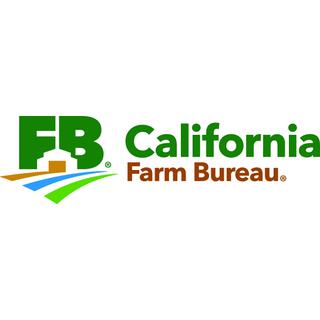With more than 160 years of farming the same land, the importance of responsible agriculture is not lost on the Bowles and Lawrence families. Trends come and go, but sustainability and resilience have defined this family business for generations.
Bowles Farming Company’s roots trace back to when Henry Miller began farming in the San Joaquin Valley in 1858. Miller is also credited with establishing his ancestors’ commitment to conservation.
When Miller noticed that Tule elk were being erased from the landscape by hunters, he made an investment to protect the species. At a time when conservation wasn’t top of mind, Miller had horsemen round up the last remaining Tule elk and relocate them to a protected area. From these few dozen individuals, Tule elk now inhabit various areas within their historical range in California.
Miller’s descendant, Cannon Michael, carries on that legacy by providing leadership on habitat protection, water conservation, soil health, sustainable farming, and sound farm and environmental policy as president of Bowles Farming Company. Michael leads the business that his grandfather formed with two siblings in 1965 with curiosity, open-mindedness, and genuine concern for the well-being of people and the planet.
Across the 11,200 acres under his management, Michael has embraced innovative conservation practices including cover crops and precision technology to optimize water and nutrient management. Bowles Farming Company participates in rigorous certification programs for its crops of tomatoes, corn, herbs, garlic, wheat, alfalfa, melons, carrots, almonds, and cotton.
With farmland adjacent to the San Joaquin River, key riparian corridors have been restored and 650 acres of wetlands dedicated in a federal easement provide critical habitat for migratory birds. Michael’s concern for California’s water resources stretches beyond his farm gate.
Michael is described as a natural convenor among farm, NGO, and water-user communities, who seeks lasting policy solutions. He regularly hosts large group dinners at his farm for agricultural and conservation leaders to build trust and identify areas of common ground on challenging water and land issues. As a member of the Environmental Defense Fund’s Ecosystem Committee, he helped shape its approach to water policy, climate-smart farming, and Endangered Species Act implementation.
Bowles Farming Company boasts a growing list of collaborations with state, federal, and NGO partners. With assistance from Pollinator Partnership, it established a 1.5-mile hedgerow around the perimeter of its managed wetlands. Michael credits Audubon Society biologists with helping him see how cropland can be managed to provide better bird habitat. In addition to conducting bird surveys, he invested time and resources into protecting raptors by trapping pests in crop fields instead of using poison to control them.
Michael’s openness to innovation led him to be an early adopter of installing solar arrays on his farm and utilizing composted green waste from nearby municipalities. The diversion of organic, green waste from landfills reduces methane emissions, which helps California meet its climate change goals.
Michael’s appreciation for the environmental benefits of native plants led to the creation of Great Valley Seed which uses his farming expertise to scale up the production of cost-effective native plants. It’s that sort of resilience that has always served as this farm’s cornerstone.
This Merced County landscape has witnessed a lot of changes over the past 165 growing seasons. Under the conservation-minded leadership of Cannon Michael, the Bowles Farming Company has found a way to innovate, adapt, and thrive.







